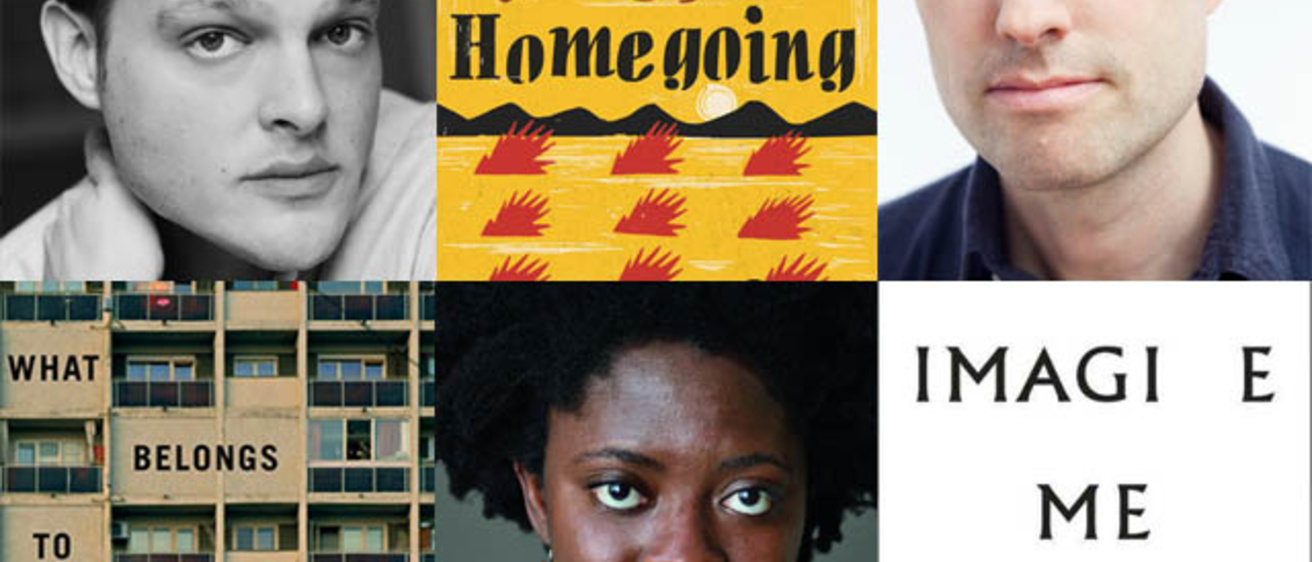Alumni from the Iowa Writers’ Workshop won an exceptional number of national literary awards in this year’s awards season, and the novels of three alumni in particular—Adam Haslett, Garth Greenwell, and Yaa Gyasi—each received numerous prestigious honors.
“We’ve had strong showings in other recent years,” says Lan Samantha Chang, director of the Workshop and May Brodbeck Professor of Liberal Arts and Sciences, “but 2016 was unusual for the depth and scope of Workshop representation.”
Chang says alumni were heavily represented in all categories of literary award. Many were chosen for major career honors: Juan Felipe Herrera (MFA ’90) received a second appointment as U.S. Poet Laureate; Abraham Verghese (MFA ’91) was named for the National Humanities Medal; Sandra Cisneros (MFA ’78) won the National Medal of the Arts; and Joy Harjo (MFA ’70) received $100,000 for a lifetime of achievement as this year’s Ruth Lilly Poetry Prize winner.
Workshop Professor Emerita Marilynne Robinson was also recognized at the national level with a Library of Congress Award for Fiction. Alumnus Bret Anthony Johnson (MFA ’02) won £30,000 (about $38,000) as part of this year’s Sunday Times EFG Short Story Award, the most prestigious prize for a short story in the world. Writers such as Jane Mead (MFA ’88), Robyn Schiff (MFA ’99), and Ann Patchett (MFA ’87) were finalists for major book prizes in poetry and fiction.
For his recent novel, Imagine Me Gone, Adam Haslett (MFA ’99) was named a finalist for the Pulitzer Prize for Fiction, one of the highest literary awards a novel can receive. Imagine Me Gone also won the Los Angeles Times Book Award, was a finalist for the National Book Critics Circle Award, and was long-listed for the National Book Award for Fiction.
In addition, recent graduates were heavily represented among the finalists and winners of first book prizes. Yaa Gyasi (MFA ’14) was listed by the National Book Foundation among its “5 Under 35,” and her debut novel, Homegoing, which she worked on while at the Workshop, won the PEN/Hemingway Award for Debut Fiction, the National Book Critics Circle’s John Leonard Award for Best First Book, and was named finalist for the Center for Fiction’s First Novel Prize, among other accolades.
Garth Greenwell’s (MFA ’15) debut novel, What Belongs to You, was named on more than 50 “Best of 2016” lists and won the British Book Award for Debut of the Year. It was a finalist for the Los Angeles Times Book Award, the National Book Award, the Center for Fiction First Novel Prize, and the PEN/Faulkner Award for Fiction. In addition, the novel has been named to the short list for the James Tait Black Memorial Prize, to be announced in August, which is among the United Kingdom’s oldest and most prestigious literary awards.
Reflecting on the international success of his first novel, Greenwell downplays the awards and highlights an event he attended in Sofia, the capital of Bulgaria, where the book is largely set and where Greenwell spent four years teaching high school. What Belongs to You features several LGBTQ characters and examines the experience of the Bulgarian LGBTQ community, which earned the novel considerable attention in Bulgaria.
“The book was discussed quite a lot in Bulgaria,” says Greenwell. “There isn’t a novel in Bulgarian that talks about Bulgarian queer lives and Bulgarian queer communities, so this is kind of uncharted territory there. That’s why it was important for me to be there; I wanted to be a part of the conversation about why it’s important to tell these stories and the fact that these stories do belong in literature.”
The event in question, held in the National Palace of Culture, was attended by many LGBTQ people of all ages, and Greenwell describes gathering with such a community as “overwhelmingly moving,” adding, “It was by far the most important, the best, the most moving aspect of what’s happened for my book in the last year.”
Although she has been a judge for the Pulitzer Prize for Fiction, Chang says it’s difficult to predict which literary works will receive acclaim.
“The publishing industry is notoriously fickle,” she says, “and the prize season is frequently surprising.”
Both Chang and Greenwell agree that the environment at the Workshop is a strong contributor to the high quality of writing being recognized.
“The Workshop is fortunate to exist in Iowa City, an intellectually stimulating community that is also nurturing and calm,” says Chang. “Nurturing and developing writers requires a delicate balance of community and personal space. There’s a reason the Workshop flourished in Iowa City; it couldn’t exist in New York City.”
Greenwell attributes the success of recent alumni to Chang’s efforts as program director to nurture writers with a diversity of backgrounds and voices.
“Sam has made genuine diversity such a priority as part of her tenure as director,” says Greenwell. “I think it would be difficult to find any program anywhere more diverse than the fiction program at the Iowa Writers’ Workshop. And I think the excellence of the work being done is the fruit of that effort to create an environment that supports really exciting, unexpected work.”
